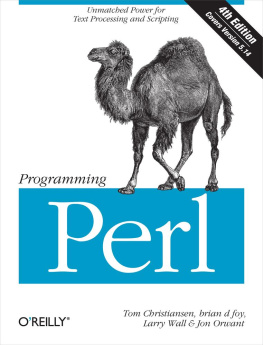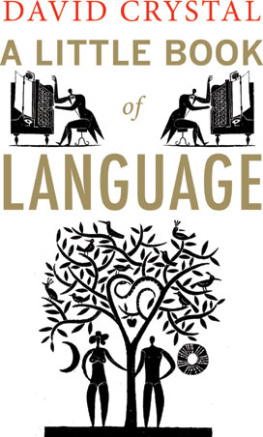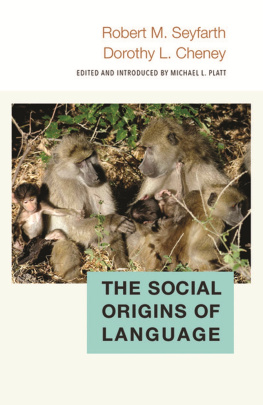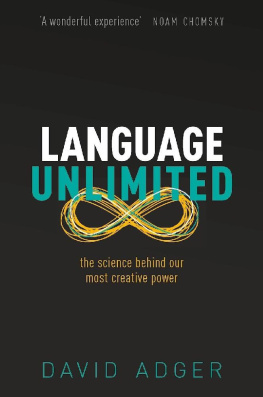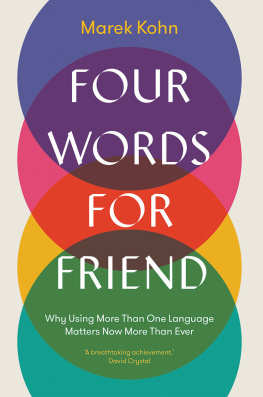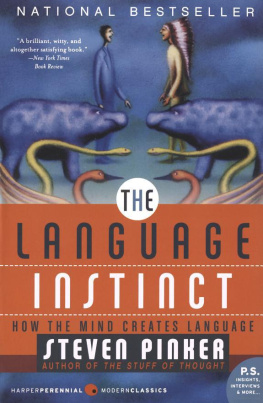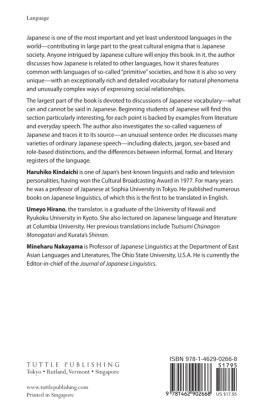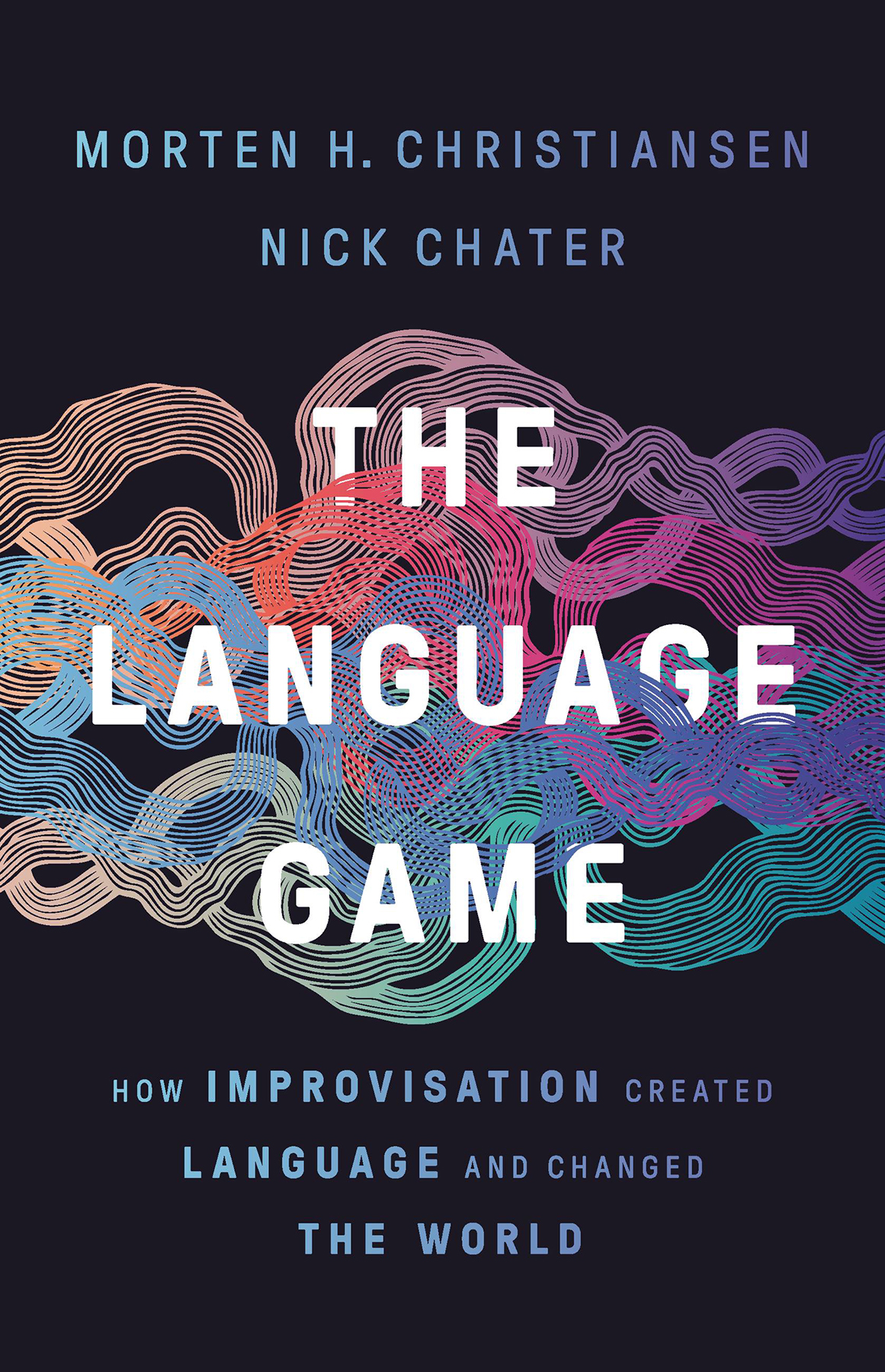
Creating Language
Connectionist Psycholinguistics
ALSO BY NICK CHATER:
The Mind Is Flat
Copyright 2022 by Morten H. Christiansen and Nick Chater
Cover design by Ann Kirchner
Cover image Jumpingsack / Shutterstock.com
Cover copyright 2022 by Hachette Book Group, Inc. Hachette Book Group supports the right to free expression and the value of copyright. The purpose of copyright is to encourage writers and artists to produce the creative works that enrich our culture.
The scanning, uploading, and distribution of this book without permission is a theft of the authors intellectual property. If you would like permission to use material from the book (other than for review purposes), please contact permissions@hbgusa.com. Thank you for your support of the authors rights.
Basic Books
Hachette Book Group
1290 Avenue of the Americas, New York, NY 10104
www.basicbooks.com
First Edition: February 2022
Published by Basic Books, an imprint of Perseus Books, LLC, a subsidiary of Hachette Book Group, Inc. The Basic Books name and logo is a trademark of the Hachette Book Group.
The Hachette Speakers Bureau provides a wide range of authors for speaking events. To find out more, go to www.hachettespeakersbureau.com or call (866) 376-6591.
The publisher is not responsible for websites (or their content) that are not owned by the publisher.
Additional copyright/credits information is .
Library of Congress Cataloging-in-Publication Data
Names: Christiansen, Morten H., 1963 author. | Chater, Nick, author.
Title: The language game : how improvisation created language and changed the world / Morten H. Christiansen, Nick Chater.
Description: New York : Basic Books, 2022. | Includes bibliographical references and index.
Identifiers: LCCN 2021034161 | ISBN 9781541674981 (hardcover) | ISBN 9781541674974 (ebook)
Subjects: LCSH: Language and languagesOrigin. | Language and languagesPhilosophy. | Cognitive grammar.
Classification: LCC P116 .C48 2022 | DDC 401dc23/eng/20211027
LC record available at https://lccn.loc.gov/2021034161
ISBNs: 9781541674981 (hardcover), 9781541674974 (ebook)
E3-20211223-JV-NF-ORI
To our families
L anguage is essential to what it means to be human, yet we rarely give it a second thought. We discover just how central it is to every aspect of our lives only when it fails uswhether in a foreign city or following a stroke. Imagine the cataclysmic impact of a mystery virus that deprives us of language: modern civilization would rapidly give way to anarchy, citizens would be lost in an informational vacuum, unable to coordinate, bargain, or reason with each other. Or consider an evolutionary scenario in which our ancestors never developed language. Without the ability to easily transmit information and skills from person to person, to share ideas, form plans, or make promises, it is hard to imagine we could have developed the cultural and technological sophistication of contemporary hunter-gatherers, let alone more complex societies. Having a large, humanlike brain is not enough. We need look no further than our nearest primate cousinsthe bonobos, chimpanzees, gorillas, and orangutansfor an idea of how limited our society would be without language. The gulf between ape communities But as we will see, the human invention of language is probably the key factor from which most of the other differences flow.
Even though language is deeply rooted in everything we do, it is profoundly puzzling. How can mere noises or gestures convey meaning at all? What are the patterns in the sounds, words, and meanings of which language is composed, and where do they come from? Why is understanding how a language works such an immense challenge for armies of professional language scientists when each new generation of children can easily master their native tongue by the age of four? What is it about the human brain that makes language possible? Why dont we all speak the same language? Why cant chimps talk? Can machines understand language?
Progress toward answering these and many other questions has been blocked by the fundamental misconception that the rough-and-tumble of everyday language is a pale shadow of an ideal language, where words have clear meanings and are put together following well-defined grammatical rules. But this traditional story has things exactly backward. Real languages are not slightly mangled variants of a purer, more orderly linguistic system. Instead, actual language is always a matter of improvisation, of finding an effective way to meet the communicative demands of the moment. Humans are playful, metaphorical, creative communicators whose words only gradually come to have more stable meanings. And the relatively stable regularities of grammar are not the starting point. They are the result of countless generations of communicative interaction, through which linguistic patterns become ever more entrenched. We shall see that the apparent impurity, disorder, and ill discipline of contemporary speech does not represent a ragged instantiation of some perfect ideal. Instead, the bricolage of language, its bafflingly complex, interacting, and overlapping patterns, is a product of its historythe myriads of conversations that have incrementally and inadvertently created todays sophisticated linguistic systems. The spontaneous emergence of linguistic order is a story as remarkable as the emergence of life itself.
Language, we suggest, is like a game of charadesa limitless collection of loosely connected games, each shaped by the demands of the situation and the shared history of the players. Like charades, language is continually invented in the moment and reinvented each time we play again. Ludwig Wittgenstein, arguably the most influential philosopher of the twentieth century, saw meaning as arising from how we use language in communicative games. A cry of hammer! could be an instruction to start hammering or to pass a hammer. It might be a warning that a hammer is falling from a nearby roof, a reminder to buy a hammer or not to forget to bring one, and so on. The possibilities are limited only by our imagination. What counts as a hammer, or hammering, will depend on which language game we happen to be playing. When putting up a tent, a hammer can be a mallet or a convenient stone; if were demolishing a house, a sledgehammer is a good hammer, but if we want to carefully shape metal jewelry, wed want a delicate chasing hammer instead. For Wittgenstein, it makes no sense to ask what hammer means independent of its use in a particular communicative game. The meaning of a word comes from how we use it in conversation.
From this perspective, learning a language is like learning to be part of a series of endless, community-wide games of charades, where each new game builds on those that have gone before. Each new generation of language learners is not starting from scratch but joining a tradition of linguistic games that have been in progress from before anyone can remember. To join in the game, the child, or the second-language-learning adult, needs to jump into a linguistic game and start playing. This is how they gradually master specific communicative challenges, one by one. Learning a language is learning to become a skillful charades player. To successfully play language games, we need to be adept at dealing with the back-and-forth of everyday human interactionswe dont need to learn an abstract system of grammatical patterns. We talk without knowing the rules of our language just as



